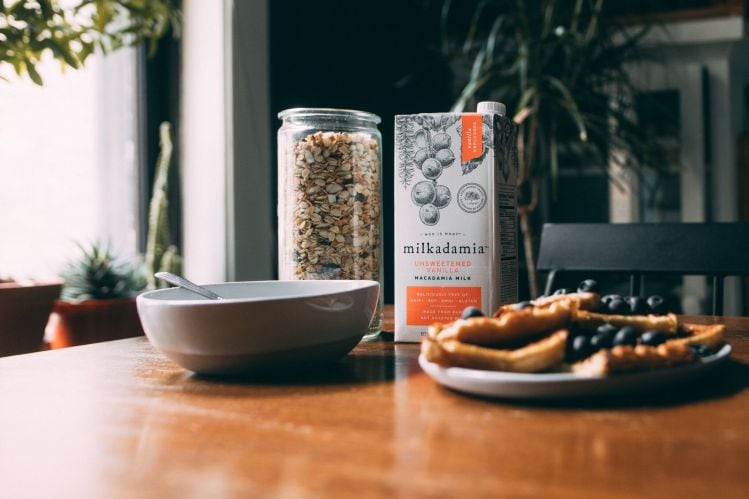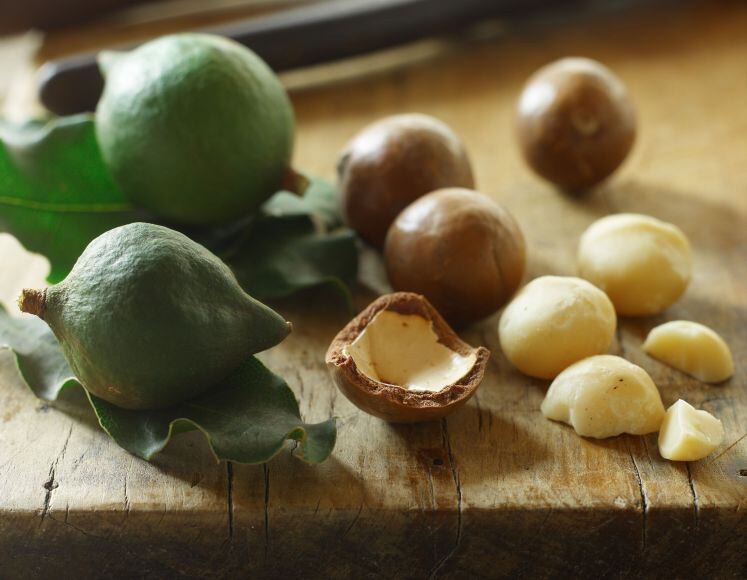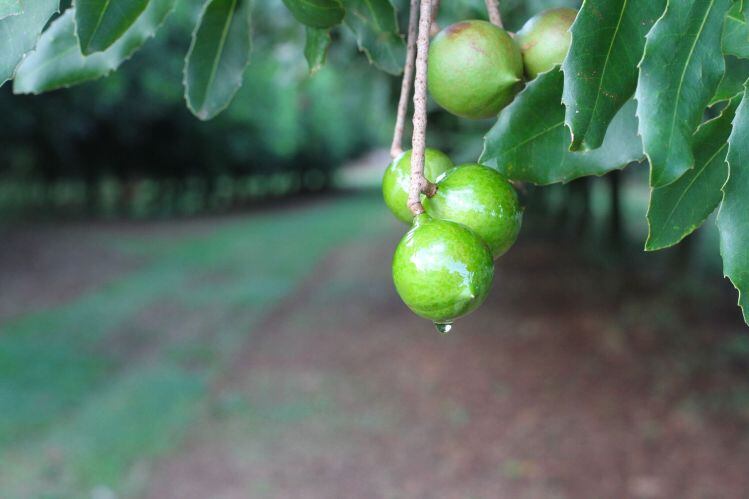The brand – owned by Jindilli Farms in Australia – first launched into the US in March 2016 with its UHT macadamia milk range and is now stocked in more than 5,000 stores, including Whole Foods, Wegmans and Sprouts, and 2,000+ cafés. In January 2018, the brand will debut a refrigerated variant in Walmart stores across the US.
Jim Richards, CEO of Milkadamia, said the launch had potential to double store count and revenues within 12 months.
“We could be in 8,000 stores by the end of January, 2018, but that is just potential. We’ve been told ‘we’re in’, but not how many stores exactly - the potential is another 4,000,” he told FoodNavigator-USA.
Within two to three years, Richards said this launch – along with other product innovations and increased interest from China, Europe and South America – would drive revenues past $10m.
Brand equity would also soar, the CEO predicted.
“About 90% of the foot traffic in retail goes through the chilled section… The expectation is that if there are that many more eyes on it, the growth should be good.”
While the goal was to eventually stock the chilled variant in natural health channels as well, he said the initial product rollout would be in mainstream.
“They came to us! …My own personal view is that mainstream grocery see it as a big bunch of clientele they can end up on the wrong side of history with if they don’t start putting artisanal and interesting products in their stores.”

We’re not apologetic like the rest
Asked how Milkadamia planned to stand out from almond, soy, oat et al in the fridge, he said it came down to clever packaging and relatable branding.
“We found the packaging in the category to be extremely unremarkable – we did not want to join that part of the herd. With non-dairy, plant-based milks, they’re addressing lifestyle, nutrition, and value issues for a whole bunch of people and the packaging should reflect that.”
‘Milkadamia’ as a brand name was fun, the CEO said, but there was also plenty of art on-pack and the company’s ‘moo is moot’ slogan aligned with a large sway of consumers who considered cow milk increasingly irrelevant.

“How a lot of people enter the category, we think, seems apologetic. We’re not at all apologetic – we’re on the side of ecological, sustainable and a whole bunch of other plant-based values …We wanted the product to be a pleasure to buy and see, rather than be another boring pack in a boring category.”
The brand also targeted regular milk drinkers, rather than competing for consumers of plant-based milk, Richards said.
“We knew there was a big taste hurdle between dairy and non-dairy, and we also knew that the bulk of people were still buying dairy…So, we thought we could either get into this category and join a little battle to take share off other companies, which seemed not very smart, or we could produce a product that lowered that taste hurdle.”
Richards said the secret to overcoming such a taste hurdle was raw nuts – something few manufacturers in the category used.
“We were forced to really work on the taste. Raw macadamias have a really subtle taste; it’s not a strong taste.”
Milkadamia was made using a raw macadamia paste – made at the company’s processing plant in Australia – at a rate of around 3-3.5% in the final product, he said.
Beyond taste, Richards said the nutritional “super power” of macadamias – an “extreme” anti-inflammatory effect from its high oil content – was of equal worth.
However, he said most consumers were drawn to the product with broader considerations around health and wellness.

We operate a wild, tangled farm
The processing plant where the paste was made sat alongside the company’s 800 acreage of macadamia trees – grown across three farms in New South Wales, Australia.
Eco-conscious production was a strong focus for the team out there, Richards said – and an aspect Milkadamia wanted to highlight to consumers.
The macadamia trees grown on the farm, for example, were native to the nearby rainforest and therefore required no irrigation at all because they were perfectly suited to the climate, he said.
The farm’s manager was also dedicated to leaving the farm as ‘natural’ as possible, he said – creating habitats for pollinating native bees and moths and building owl nesting sites to counter pest problems, typical to any farm land.
“When you talk about the amount of energy put into the farm, a lot of it has nothing to do with the trees – it’s about making sure the bees are okay; the owls are okay; and letting nature do its own thing, which produces really strong results.
“…It’s not a tidy farm; it’s a different look, but it’s great for the whole process. When you drive past all these manicured farms and then come to ours, you’ve got to adjust your thinking on what’s beautiful, but when you do and you see our wild, tangled farm, it’s beautiful.”

